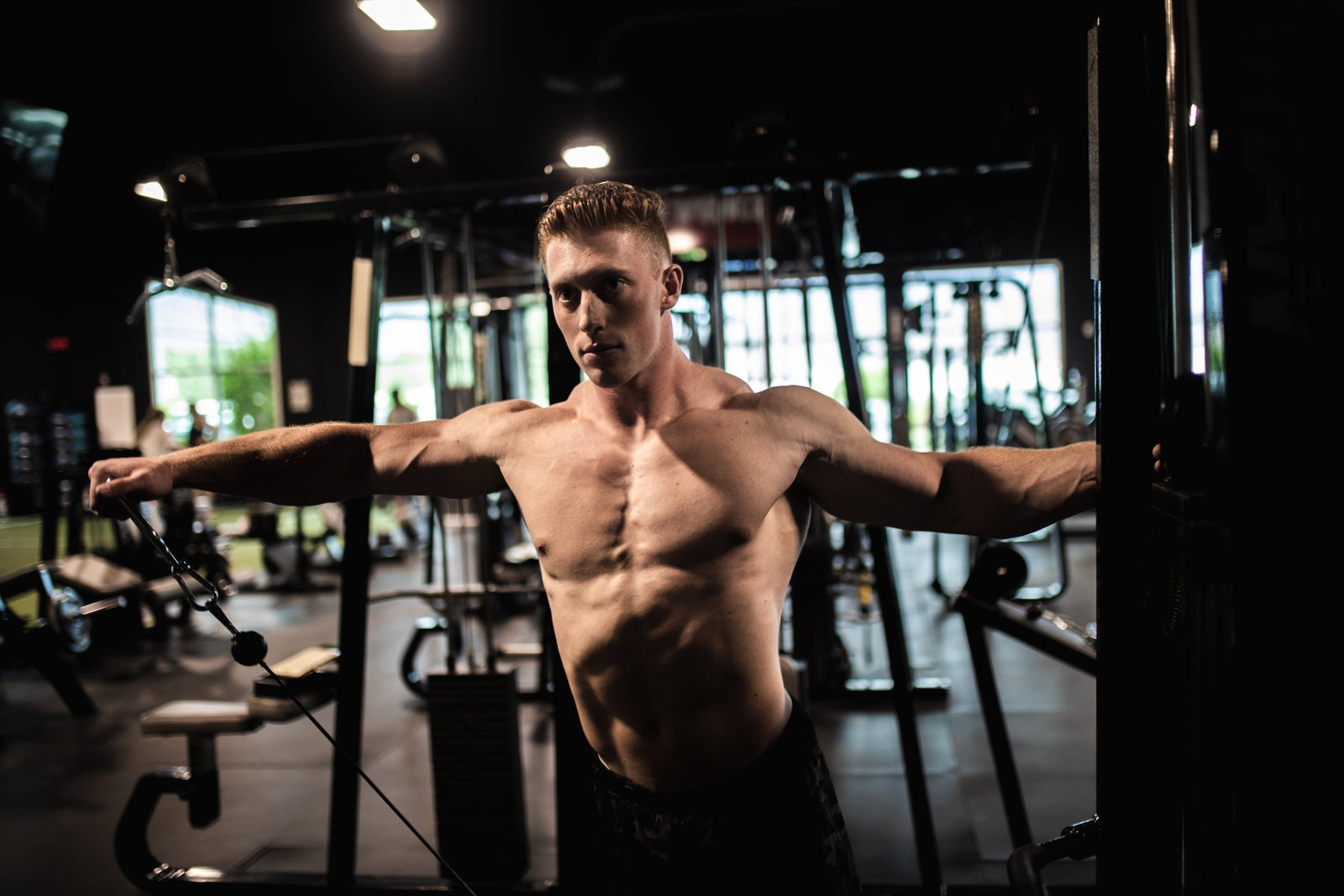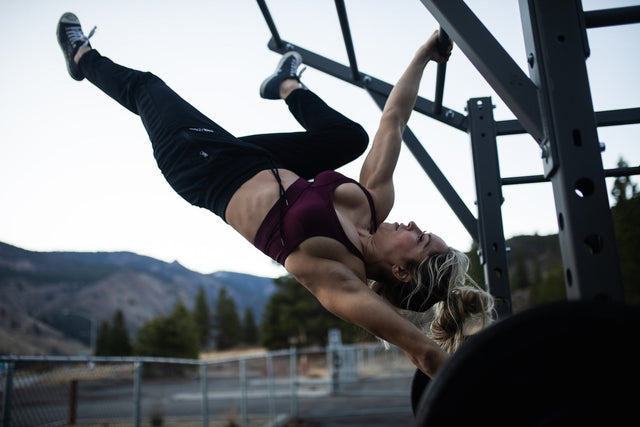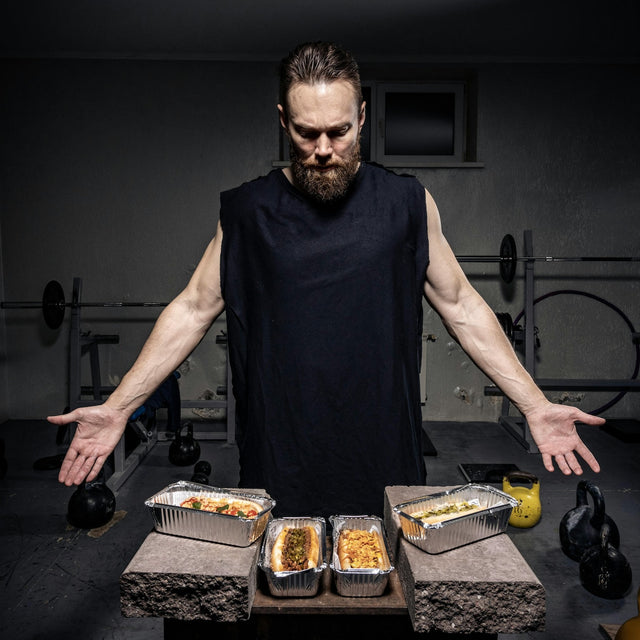Are you ready to sculpt a powerhouse physique while following a plant-based diet? In the world of bodybuilding, the misconception that you need to devour pounds of meat to gain muscle mass is being debunked. With the rise of vegetarianism and veganism, athletes are proving that incredible gains can be achieved by harnessing the power of plants. Welcome to the ultimate guide on bodybuilding on a vegetarian diet, where we unveil the secrets to fueling your workouts and maximizing performance without compromising your dietary choices.
Embark on a journey that merges protein-packed plants with targeted training to elevate your gains to new heights. Whether you are a seasoned vegetarian or considering a plant-based approach for the first time, this guide will equip you with the knowledge and tools needed to thrive in the gym and beyond. Get ready to unleash your full potential and redefine what's possible with a vegetarian bodybuilding regimen.
Benefits of Bodybuilding on a Vegetarian Diet
Muscle Gain
Bodybuilding on a vegetarian diet offers a myriad of benefits that extend beyond muscle gains. One of the most significant advantages is the incorporation of a diverse array of plant-based foods, which are typically rich in vitamins, minerals, and antioxidants. These nutrients are crucial for overall health, aiding in recovery and reducing inflammation that can occur after intense workouts.
A well-rounded vegetarian diet can enhance immune function and promote faster recovery, allowing bodybuilders to train harder and more frequently without compromising their health. Studies have shown that plant-based diets can support hypertrophy when protein intake is sufficient (Craddock et al., 2022, Nutrients).
Gut Health
Moreover, vegetarians often experience improved digestion and gut health due to the high fiber content of fruits, vegetables, legumes, and whole grains. This not only supports overall wellness but also optimizes nutrient absorption, ensuring that the body effectively utilizes food consumed for muscle growth and energy.
Additionally, a vegetarian diet can lead to better weight management. Many plant-based foods are naturally lower in calories compared to animal products, making it easier to maintain an ideal body composition while still achieving muscle gains. A high-fiber diet has also been linked to reduced body fat and better insulin sensitivity (Slavin, 2013, Nutrition Today).
Environmentally Friendly
Choosing a vegetarian lifestyle also aligns with ethical and environmental considerations that are increasingly important to many individuals. By opting for a plant-based diet, bodybuilders can significantly reduce their carbon footprint and promote animal welfare.
According to a study published in Science (Poore & Nemecek, 2018), shifting towards a plant-based diet can reduce greenhouse gas emissions by up to 73% per person. This sense of purpose and commitment to a sustainable lifestyle can further motivate individuals in their bodybuilding journey, creating a strong mental and emotional foundation to support their physical goals.
Key Nutrients for Vegetarian Bodybuilders
Protein
When following a vegetarian diet, it is essential to focus on key nutrients that support muscle growth and performance. Protein is the most critical nutrient for bodybuilders, as it is the building block of muscle tissue.
While vegetarian sources of protein differ from those found in animal products, it is crucial to ensure adequate protein intake from a variety of plant-based sources. This includes legumes, nuts, seeds, and whole grains, which provide the necessary amino acids to support muscle repair and growth. Combining different plant proteins throughout the day—such as rice and beans—ensures complete protein intake (Mangels, 2014, Vegetarian Nutrition).
Iron
Another important nutrient for vegetarian bodybuilders is iron. Plant-based sources of iron, such as lentils, chickpeas, and spinach, contain non-heme iron, which is less readily absorbed by the body compared to heme iron from animal sources.
To enhance iron absorption, it’s beneficial to consume vitamin C-rich foods alongside iron-rich meals. For example, pairing lentils with bell peppers or citrus fruits can significantly boost iron uptake, helping to maintain energy levels during workouts (Hurrell & Egli, 2010, International Journal for Vitamin and Nutrition Research).
Calcium and Vitamin D
Calcium and vitamin D are also vital nutrients that support bone health and muscle contraction. Vegetarian bodybuilders can obtain calcium from fortified plant milks, leafy greens, and tofu.
Vitamin D, primarily found in animal products, can be sourced from fortified foods or supplements, especially for those with limited sun exposure. Studies have shown that adequate vitamin D levels can improve muscle strength and exercise performance (Cannell et al., 2009, Medicine & Science in Sports & Exercise).
Recommended Product: Swolverine Vitamin D3 – Supports immunity, muscle recovery, and bone health with a high-potency, plant-based D3 supplement.
Vegetarian Sources of Protein for Muscle Growth
Legumes
A common concern among those considering bodybuilding on a vegetarian diet is the adequacy of protein intake. Fortunately, there are numerous plant-based sources of protein that can effectively support muscle growth.
Legumes, such as lentils, chickpeas, and black beans, are excellent options, providing not only protein but also fiber and essential nutrients. For example, one cup of cooked lentils contains about 18 grams of protein, making them a powerhouse for vegetarian bodybuilders.
Soy Products: Tofu, Tempeh, and Edamame
Another fantastic source of protein is tofu and tempeh, both derived from soybeans. Tofu is versatile and can be incorporated into various dishes, while tempeh offers a nutty flavor and firm texture, making it an ideal meat substitute.
A 3.5-ounce serving of tempeh provides approximately 20 grams of protein, significantly contributing to daily protein needs. Edamame, or young soybeans, can serve as a protein-rich snack or addition to salads and stir-fries.
Soy protein has been shown to be as effective as whey in supporting lean mass gains when consumed in adequate amounts (Messina, 2010, Journal of the American College of Nutrition).
Nuts and Seeds
Nuts and seeds also play a vital role in a vegetarian bodybuilder's diet. Almonds, chia seeds, hemp seeds, and pumpkin seeds are packed with protein, healthy fats, and essential minerals.
For instance, just two tablespoons of hemp seeds contain about 10 grams of protein, along with omega-3 fatty acids that support heart and brain health. Incorporating a variety of these protein sources throughout the day ensures that all essential amino acids are consumed, facilitating optimal muscle repair and growth.
Pea Protein: One of the Best Vegetarian Sources of Protein for Muscle Growth
Why Pea Protein Is Ideal for Muscle Growth
When it comes to building muscle on a vegetarian or plant-based diet, pea protein stands out as one of the most effective, science-backed protein sources. Made from yellow split peas, pea protein isolate is a complete, high-quality protein that supports muscle repair, growth, and overall athletic performance.
Unlike some plant-based proteins that lack essential amino acids, pea protein contains all nine essential amino acids, making it a powerhouse for recovery and strength gains.
1. High in Branched-Chain Amino Acids (BCAAs) for Muscle Repair
One of the biggest concerns with plant-based proteins is whether they provide enough branched-chain amino acids (BCAAs)—especially leucine, which is essential for muscle protein synthesis (MPS). Pea protein is naturally rich in leucine, isoleucine, and valine, which are the key BCAAs responsible for stimulating muscle repair and hypertrophy.
🔬 Research-backed fact: A 2015 study found that pea protein stimulates muscle protein synthesis at rates comparable to whey protein when combined with resistance training
(Babault et al., 2015, Journal of the International Society of Sports Nutrition).
2. Comparable to Whey Protein for Strength and Performance
While whey protein is often considered the gold standard, pea protein has proven to be just as effective in supporting muscle growth and workout performance. In a 12-week study, men who supplemented with pea protein isolate gained similar muscle thickness and strength as those using whey protein.
📚 Study highlight: Participants experienced comparable strength and size gains when consuming pea protein
(Banaszek et al., 2019, Clinical Nutrition).
Unlike dairy-based options, pea protein is gentle on the digestive system, making it a preferred choice for individuals with lactose intolerance or gut sensitivities.
3. Easy to Digest & Hypoallergenic
Unlike whey, which contains lactose and dairy allergens, pea protein is naturally free from gluten, soy, and common allergens. It's an excellent option for those with food sensitivities or digestive concerns.
Bonus: Pea protein is also a good source of iron, a mineral crucial for oxygen transport, energy production, and endurance—especially important for plant-based athletes.
4. Supports Lean Muscle Mass & Fat Loss
In addition to supporting muscle growth, pea protein helps improve body composition. Thanks to its high protein and fiber content, it helps increase satiety, reduce cravings, and preserve lean muscle mass during fat loss.
🧪 Research-backed insight: A 2020 study confirmed that plant-based proteins, including pea protein, are effective for maintaining lean mass and metabolic health, just like animal-based proteins
(Rogerson, 2020, American Journal of Clinical Nutrition).
Pea Protein vs. Other Plant-Based Proteins
Not all plant-based proteins are created equal. Here's how pea protein compares to other popular vegetarian options:
| Protein Source | Protein (per 100g) | Complete Amino Acid Profile | BCAA Content | Digestibility |
|---|---|---|---|---|
| Pea Protein | 80–90g | ✅ Yes | ✅ High | ✅ Easy |
| Brown Rice Protein | 70–80g | ❌ No (low in lysine) | ✅ Moderate | ✅ Easy |
| Soy Protein | 85–90g | ✅ Yes | ✅ High | ❌ Allergen concerns |
| Hemp Protein | 50–60g | ✅ Yes | ❌ Lower leucine | ✅ High fiber |
| Pumpkin Seed Protein | 60–70g | ❌ No (low in lysine) | ❌ Lower BCAAs | ✅ Digestible |
Pea protein is a standout for its complete amino acid profile, high BCAA content, and superior digestibility.
Who Should Use Pea Protein?
Pea protein is a smart choice for:
✔ Athletes and bodybuilders seeking to build lean muscle mass and recover faster
✔ Vegetarians and vegans needing a complete plant-based protein
✔ Individuals with dairy, gluten, or soy allergies
✔ Anyone looking for a clean, natural, and sustainable protein to support their goals
Pea Protein for Muscle Growth
If you're looking for one of the best vegetarian protein sources to support muscle growth, strength, and recovery, pea protein is your go-to choice. Packed with BCAAs, essential amino acids, and iron, it delivers similar benefits to whey protein—without the side effects.
Whether you're vegan, vegetarian, or simply focused on optimal performance and recovery, pea protein is a clean, powerful, and eco-conscious solution to help you build muscle, improve endurance, and boost overall health.
Conclusion and Final Tips
In conclusion, bodybuilding on a vegetarian diet is not only feasible but can also be exceptionally rewarding. By harnessing the power of plant-based foods, individuals can achieve their muscle-building goals while promoting overall health and well-being. Key to success lies in understanding the importance of macronutrients, particularly protein, and ensuring a diverse intake of essential vitamins and minerals. Thoughtful meal planning and strategic pre- and post-workout nutrition can further enhance performance and recovery.
As you embark on your vegetarian bodybuilding journey, remember to be patient and persistent. Building muscle takes time and dedication, regardless of dietary choices. Don’t hesitate to experiment with different foods, meal combinations, and supplements to find what works best for your body and lifestyle.
Finally, stay informed and connected with the vegetarian bodybuilding community. Whether through social media, forums, or local groups, sharing experiences and learning from others can provide valuable insights and motivation. Embrace the power of plants, and get ready to redefine your limits as you fuel your gains on a vegetarian diet.
Find similar articles:
Nutrition












